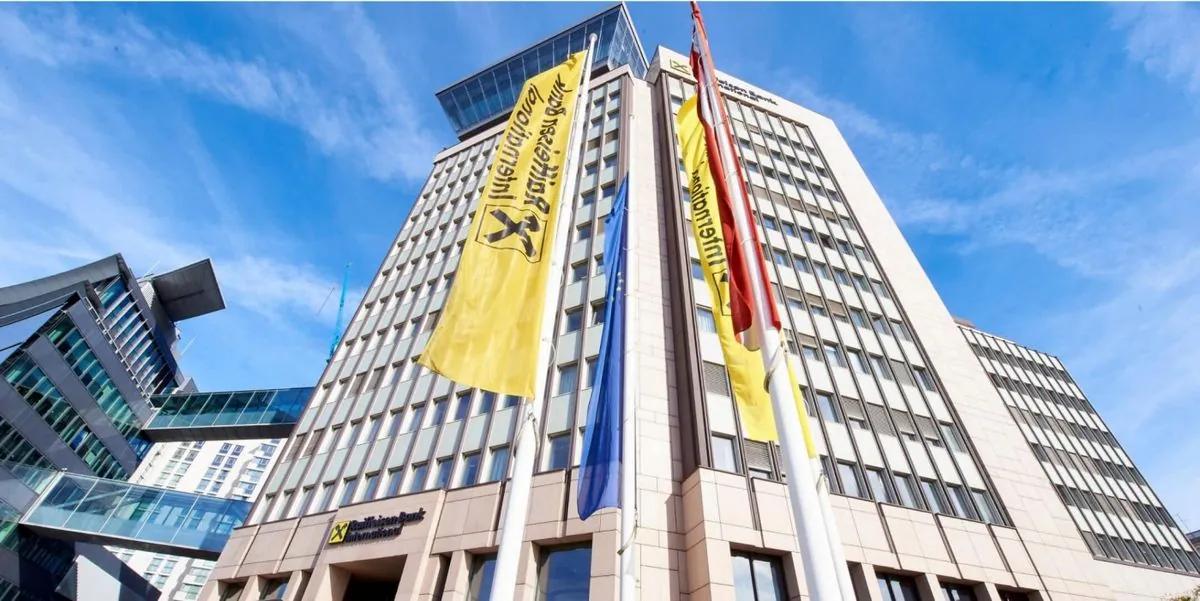Russian Court Blocks Raiffeisen Bank's Exit, Complicating Western Sanctions
A Russian court has frozen Raiffeisen Bank International's shares in its local arm, preventing the largest Western bank in Russia from leaving. This move challenges Western efforts to isolate Russia financially amid the ongoing conflict in Ukraine.

Raiffeisen Bank International (RBI), the largest Western bank operating in Russia, has encountered a significant obstacle in its attempts to exit the country. A Russian court's decision to freeze RBI's shares in its local subsidiary has effectively blocked the bank's departure, causing its stock to fall by approximately 5% on September 6, 2024.
This development marks the most substantial freeze involving a Western financial institution in Russia since the start of the conflict in Ukraine. The court's action has frustrated Western efforts to sever ties with Moscow and isolate Russia economically, more than two and a half years after the invasion began.
RBI, an Austrian multinational banking group, has been under pressure from international regulators to spin off its Russian business. The bank plays a crucial role in Russia's financial system, providing a payment lifeline to hundreds of companies and millions of customers. Despite pledges to reduce its presence, RBI's operations in Russia have remained largely unchanged since February 2022.

The freeze has significant implications for RBI's financial standing. While the bank's spokesperson stated that the move would not impact the Russian subsidiary's operations or efforts to reduce them as demanded by the European Central Bank (ECB), it has ruled out the possibility of selling the bank. RBI's stock, valued at approximately 5.9 billion euros ($6.6 billion), is now trading about 40% below its pre-invasion levels.
RBI's Russian operations have become increasingly profitable since the start of the conflict, accounting for about half of the group's profits in the first quarter of 2024. This financial success has complicated the bank's exit strategy and raised concerns among Western regulators, including the U.S. Treasury and the ECB.
The situation highlights the challenges faced by Western companies with significant investments in Russia. While UniCredit, an Italian bank, also maintains operations in Russia, RBI's larger presence has made it a focal point in assessing Western resolve to sever economic ties with Moscow.
RBI's attempts to exit Russia have been fraught with difficulties. In May 2024, the bank abandoned a deal involving the purchase of a frozen stake in a construction group linked to Oleg Deripaska, following pressure from Washington. The current freeze is related to legal action taken by one of the companies involved in that failed deal.
As RBI grapples with this setback, the bank has stated its intention to challenge the court's decision. However, the freeze underscores the complex interplay between international sanctions, corporate strategies, and Russia's efforts to maintain its economic ties with the West.
"We can still appoint management and give instructions to the Russians but we cannot sell the bank."
This development serves as a reminder of the ongoing challenges faced by Western businesses operating in Russia and the broader implications for international efforts to isolate the country economically. As the situation unfolds, it remains to be seen how RBI and other Western financial institutions will navigate the increasingly complex landscape of international finance and geopolitics.


































